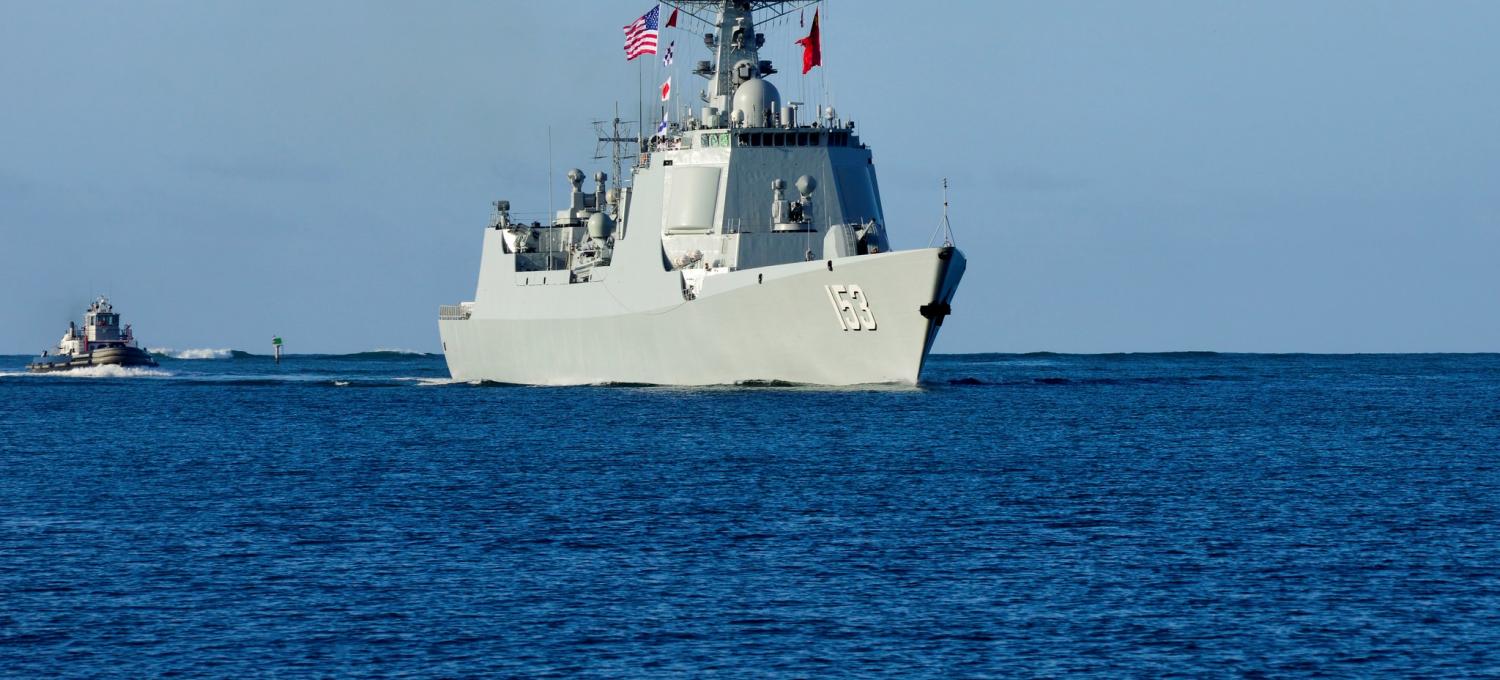Graham Allison’s new book, Destined for War: Can America and China Escape Thucydides Trap?, crashes China's rise into the US political mainstream. Unsurprisingly, it took 'a red-blooded, perhaps red-necked American' (Allison's words) to draw attention to an issue that those residing in our part of the world have debated for many years.
After explaining the Thucydides Trap – the friction created when a rising power challenges an established power – Allison goes on to present twelve historical examples that resulted in war, and four in which war was avoided. In excellent prose, Allison focuses on the examples he considers to be the most instructive, namely the Peloponnesian War, World War I, and the Cold War.
Allison also relays insights from the late Lee Kuan Yew in making his case that Beijing's goal is the restoration of China as a regional hegemon. He methodically, and in my view conclusively, dismantles the idea that China will become a 'responsible stakeholder' in the international system in which the US remains the arbiter. China seeks the expulsion of the US from Asia, and is rapidly accumulating capabilities to achieve this goal.
As an American, Allison has succeeded in the first and most important of Robert S McNamara's '11 life lessons': empathise with your enemy. He translates an unfiltered Chinese view for his local audience, analogising it to America's expansion in the Western Hemisphere under President Teddy Roosevelt.
Going by Allison's ledger, the factors favouring war between the US and China are ominous: two powers with narratives of their own 'exceptionalism', China's sense of past humiliation and present restoration, incompatible cultures and political systems, and a series of entangling flashpoints and alliances. On the positive side, Allison argues, is an interdependent trade relationship and stable nuclear deterrence.
Allison also rightly labels North Korea as a 'Cuban missile crisis in slow motion'. Here I strongly disagree with those who argue that America will accept North Korea's increasing nuclear capabilities. The red line for the Trump Administration is any North Korean capability to deliver a warhead to the US mainland. If this happens (and there is no indication from Pyongyang of a different course), America will be at war on the Korean Peninsula. Indeed, the White House may conclude that a strike is necessary before that threshold is crossed. Unlike the Soviet Union in the Cuban missile crisis, however, China’s options for influencing North Korea are severely limited.
Ironically, the weakness of Allison's book is not his warning that the US and China are at risk of falling into the Thucydides Trap – a case he makes conclusively – but rather his explanations for why war remains avoidable.
First, Allison makes the common error that nuclear dynamics between the US and China work the same way as it did with the Soviet Union during the Cold War. Nuclear deterrence rests not just on capability (ensuring a retaliatory strike), but also credibility. During the Cold War, the fall of Western Europe to the Soviet Union posed such an existential threat to the US that a nuclear war could credibly be initiated to prevent it. In Asia, however, the US will not commence a full nuclear exchange with China and there is no way to convince Beijing otherwise. As such, current nuclear dynamics in Asia makes major war more likely, as mapped out in my review of the RAND study of a US-China war, a study also cited by Allison.
Finally, after beautifully articulating China’s perception of the rivalry, it is surprising just how US-centric Allison’s ideas are for how conflict might be avoided. Allison suggests curtailing America’s commitment to Taiwan in exchange for concessions in the South and East China seas, or abandoning Prompt Global Strike in exchange for Beijing limiting its conventional expansion. But there is simply no prospect of China agreeing to any of this. Why should it? Time is on Beijing's side. These kinds of deals only worked during the Cold War because each side recognised the other’s core interests while the balance of power between the US and the Soviet Union remained relatively stable. In the case of China and the US, the power shift is rapid and profound, and while Allison clearly understands this he fails to see the implications of his own conclusions. Rather than horse-trading over Taiwan and the South China Sea, Beijing might suggest the US leave Asia entirely in exchange for permanent recognition of Washington’s annexation of Hawaii!
Despite these shortcomings, Allison’s book is essential reading both for the content and its impact. It is already being circulated in the White House and politburo, and will no doubt be added to political science reading lists in universities around the globe. As Michael Fullilove identified, the pivot failed because Obama failed to sell the importance of Asia domestically. In Destined for War, Allison calls Obama’s Asia pivot 'using an extra strength aspirin to treat cancer'. With this book, we might finally be shifting to chemotherapy.

